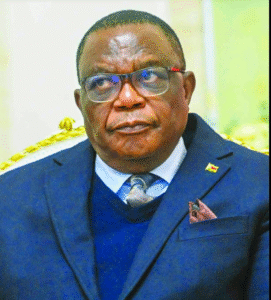HIGH COURT BAIL DENIAL FOR 73 CCC ACTIVISTS CASTS DARK CLOUD OVER UPCOMING SADC SUMMIT

In a shocking legal development that has escalated tensions in Zimbabwe’s already fragile political climate, the High Court has upheld a magistrate’s decision to deny bail to 73 out of 74 opposition Citizens Coalition for Change (CCC) activists. This ruling comes just weeks ahead of the Southern African Development Community (SADC) summit scheduled to be held in Harare on August 17, sending a chilling message to political activists and observers across the region.
Among those denied bail is former MP and minister Jameson Timba, a key opposition figure. Only one individual, Maxwell Sande, was granted bail based on his young age. The rest, many of whom are under the age of 40 and come from politically active suburbs like Chitungwiza, Epworth, and Hatcliffe, remain behind bars. They face charges of planning an unlawful assembly allegedly intended to spark anti-government protests.
Justice Munamato Mutevedzi, who delivered the High Court ruling, found no fault in the magistrate’s earlier decision. He ruled that the magistrate had acted within her powers and exercised her discretion correctly. As a result, the continued detention of the activists has been justified under the law, further entrenching the state’s narrative of security concerns and public order.
But the timing and context of this ruling suggest a deeper, more strategic motive. With Zimbabwe preparing to host regional heads of state and diplomats at the SADC summit, the government appears determined to avoid any signs of dissent or protest. This court decision effectively sidelines a large group of government critics at a moment when the state seeks to project stability and control on the international stage.
What was meant to be a simple gathering to commemorate the 1976 Soweto Uprising — a day that historically symbolizes youth resistance to oppression — has turned into a human rights scandal. The group was arrested during a private event held at Senator Timba’s residence, which was violently raided by armed riot police. Dozens were beaten, tortured, and denied medical care before being detained.
This situation raises serious questions about Zimbabwe’s commitment to the democratic values it claims to uphold. Instead of demonstrating leadership through tolerance and engagement, the state has chosen fear and repression. By locking away these opposition voices, the government has shown its unwillingness to tolerate any form of criticism, even when it comes peacefully and legally.
The impact of this ruling is not confined to the courtroom. It sends a strong and dangerous signal to civil society and young people across Zimbabwe: political participation is a punishable offense. It also reinforces the perception that Zimbabwe’s judiciary, instead of acting as a check on state power, has become a tool for political suppression.
Moreover, this crackdown is likely to draw criticism from Zimbabwe’s SADC neighbors, some of whom have already expressed concern over democratic backsliding in Harare. The regional summit was supposed to showcase Zimbabwe’s progress, but the incarceration of dozens of young political activists threatens to overshadow any diplomatic achievements.
As the summit draws closer, the spotlight will remain fixed on Zimbabwe. The world will be watching not just what is discussed in Harare’s polished halls of diplomacy, but also what is happening in its overcrowded prison cells. The fate of these 73 CCC activists could very well define Zimbabwe’s standing in the region for years to come.
In conclusion, while the High Court may argue that the law has been followed, the broader truth remains: this mass bail denial is a political strategy dressed in legal language. It reflects a government more concerned with silencing dissent than strengthening democracy. If Zimbabwe truly wants to claim its place as a respected leader in the region, it must start by respecting the rights of its own people.



